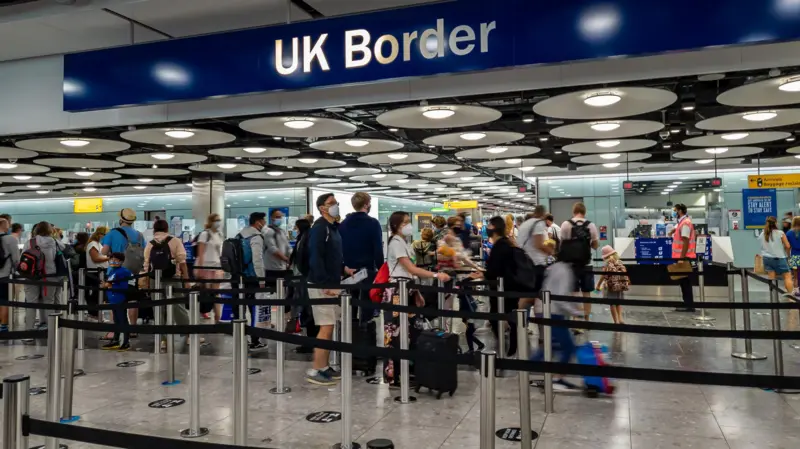UK Net Migration Falls by Half: Nigerians Among Top Arrivals Despite Tighter Visa Rules.
London, UK – Net migration to the United Kingdom fell sharply in 2024, dropping by nearly 50% to 431,000, according to new figures released by the Office for National Statistics (ONS). The steep decline, down from record levels in 2023, reflects the cumulative impact of stricter immigration rules, especially around work and student visa categories, introduced by the previous Conservative government.
The data, published on Wednesday, reveals that 948,000 people moved to the UK in 2024, while 517,000 left, leading to a net migration figure of 431,000 — a significant decrease from the 2023 high of over 700,000. The ONS attributes the fall to a drop in work and study-related migration, particularly the curbs on student dependants.
Despite the overall decline, Nigerians ranked among the top three nationalities arriving in the UK. According to the ONS breakdown:
• Nigeria:
27,000 arrived on work-related visas
22,000 arrived for study-related reasons
3,000 arrived for other reasons
Other leading countries of origin include:
• India (the highest contributor):
68,000 work-related
82,000 study-related
7,000 other
• Pakistan:
31,000 work-related
30,000 study-related
15,000 other
The majority of arrivals — 81% — came from outside the EU, amounting to 766,000 individuals, while 122,000 came from the EU or EFTA countries. Interestingly, 60,000 British nationals also returned to the UK in the same period.
Political Backdrop and Policy Shifts
The data come amid continued public debate over immigration policy. Before the general election last year, the Labour Party campaigned on a pledge to reduce net migration, citing pressures on housing and public services. Since assuming office, the Labour government has implemented stricter visa rules, including a rise in salary thresholds for work visas and tighter criteria for dependent family members.
Labour officials argue that the recent figures show that their policies — and those of the outgoing Conservative government — are beginning to take effect. However, critics warn of unintended consequences, such as labour shortages in key sectors like healthcare and social care.
Read more:
UK Immigration: New policy to blocks citizenship for refugees who made ‘dangerous journeys’
UK govt targets student visa abuse: New immigration rules coming soon
UK immigration crisis: Migrants use skilled worker visas to claim Asylum
Asylum Seekers and Hotel Accommodation
Separate Home Office data reveal a mixed picture on asylum. As of March 2025, there were 32,345 asylum seekers living in taxpayer-funded hotels, down from 38,079 in December 2024 — a notable decrease. However, the figure still exceeds the 29,585 recorded in June 2024, when Labour assumed power, indicating a 9% increase during its tenure. The all-time high under the previous administration was 58,636 in June 2023.
A Generational Policy Question
Experts say that while the short-term drop in migration may ease political pressure, the UK still faces long-term questions about its economic needs and demographic sustainability.
“The reduced net migration number is headline-grabbing,” said a senior migration analyst in London, “but the real story is whether the UK can align immigration controls with skills shortages, ageing demographics, and global economic shifts.”
Glossary of Key Terms
• Immigration: People entering the UK
• Emigration: People leaving the UK
• Net Migration: Immigration minus emigration
• Long-term Migration: Migration lasting at least 12 months
As the UK redefines its post-Brexit immigration identity, today’s numbers show that it remains an attractive destination for professionals and students — especially from countries like India, Nigeria, and Pakistan — even as policymakers continue to tighten the gates



